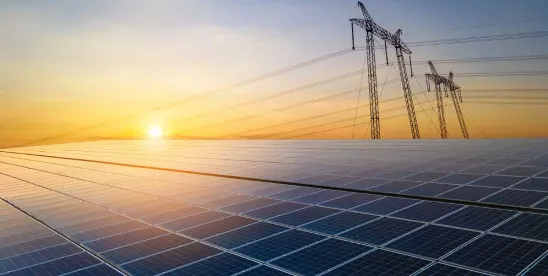EPA issued a press release yesterday that caught my eye and if you're in the business of building things, including solar projects, it is worthy of your attention too. The press release announces a settlement between a solar farm developer and EPA relating to the alleged discharge of “sediment-laden water” from a solar farm site to “a neighbor's pond and well water”.
First the Massachusetts Department of Environmental Protection and the Office of the Attorney General, and then EPA, have been bringing these cases for years. Often they involve projects that went to some lengths to stabilize the project sites and contain storm water during construction. Strong storms during construction overwhelm the stormwater management systems constructed and stormwater and sediment (what you might call dirt) from the construction site enters nearby waterways. The “sediment”, or “dirt” is considered a “pollutant” under the Federal Clean Water Act (and Massachusetts law).
Maybe a negotiated penalty of $25,000 isn't enough to cause developers to go to greater lengths to keep soil on their project sites during construction, but you should know the penalties can be, and often are, much higher.
One reason this penalty might not have been higher is where the “sediment-laden” water ended up: “a neighbor's pond” and groundwater in a well.
Since the Supreme Court's decision in Sackett v. EPA, Federal Clean Water Act jurisdiction only extends to Waters of the United States and those adjacent wetlands indistinguishable from those Waters. And the Supreme Court's decision in Hawaii Wildlife Fund v. Maui tells us that discharges to groundwater are only covered by the Federal Act if they are the functional equivalent of a direct discharge to a Water of the United States.
One can't tell from the press release the Waters of the United States closest to the site in question. It could be that EPA was happy to not litigate whether the “pond” and well water affected here are within the reach of the Clean Water Act since our nation's highest court's decisions in Sackett and Maui.
But the Massachusetts Clean Waters Act and Wetland Protection Act, and the regulations promulgated thereunder, most certainly apply to such things and the penalties for violating those laws are also steep. So all developers, including of clean energy infrastructure, should do the best they can to account for our more frequent severe storms and the effect of the stormwater from those storms on construction sites or similar interactions with EPA or MassDEP and the AG might be in their futures.
EPA alleged that Navisun, LLC violated the terms of the CGP, for stormwater discharges from construction activities at the company's solar farm development site in Acushnet, MA. In late 2022, the stormwater basin at the site failed, leading to discharge of sediment-laden water in two separate storms; the sediment from these discharges impacted a neighbor's pond and well water.
https://www.epa.gov/newsreleases/epa-settles-massachusetts-solar-company-construction-gene




 />i
/>i

